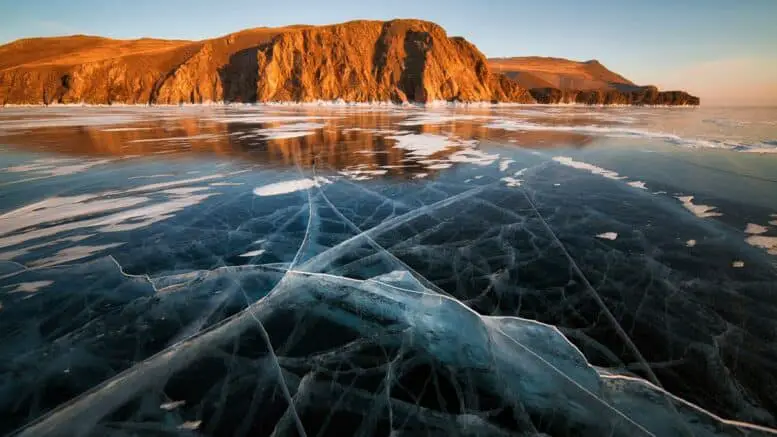Often called the Pearl of Siberia, Lake Baikal is a natural wonder that almost defies description. Its 1600 meter (almost 1 mile) depth holds 20% of all the freshwater on the planet. It is fed by 336 rivers and streams that flow from the surrounding mountains and all parts of Siberia and it is estimated that it took over 400 years for these rivers and streams to fill the lake up originally. It is considered the oldest lake in the world.

Olkhon Island – Lake Baikal
Lake Baikal’s is 600-kilometers in length and is an ecosystem of its own. In 1996 UNESCO recognised it as a world heritage site. Lake Baikal has more unique species of fish, plants and animals than any other lake in the world. One of these, the nerpa, is the only fresh water seal in the world.
Lake Baikal provides plenty of opportunities to explore beautiful nature, and is of particular interest to biologists and environmentalists. It is also facing considerable risk from development around it.

Nerpa (fresh water seal)
The latest of these risks is the new East Siberia-Pacific Ocean Oil Pipeline. Environmentalists are anything but thrilled at the idea of another pipeline, especially one built near the shores of Lake Baikal. Environmentalists have long desired to preserve the area. Already the threat of a shortage of drinking water is a concern in the region because of heavy pollution of lake waters, which is caused by wastes from the cellulose plants in the Selenga district, and also in Angara River from the poisonous wastes of Bratsk’s timber-processing plants. But preservation of Lake Baikal is a particular imperative. As of today, due to its huge size and ability to absorb pollutants, the lake is fairly clean, despite the fact that several plants and one paper mill were built close to its shores in the 1960s and 70s. Chlorine dumped into the lake has, however, affected the seal population, and increased cancer risks for humans.

Yurt camp on Baikal short
There is also considerable risk of an earthquake, as Lake Baikal is in a seismically active region, and an earthquake near the paper mill could have tragic results. Sixteen thousand people, however, depend on the mill for their mode of life. Environmentalists are very opposed the idea of building oil pipelines near the lake to connect Russia to the Russian Far East and China – again because of the possibility of an earthquake, or some other accident that could threaten Baikal’s ecosystem, home to thousands of different species (environmentalists may have liminal power to slow construction, but actually putting a stop to it is beyond their means). Many believe that the largest concern for Lake Baikal, however, is global warming: over the last 100 years the temperature has increased by 2C (the global average is an increase of 0.9C), and precipitation has doubled. Researchers are currently trying to predict the consequences.



